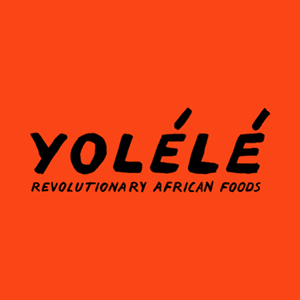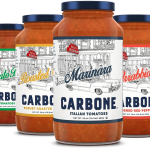Yolélé Secures Grant To Establish Ancient Grain Supply Chain Network
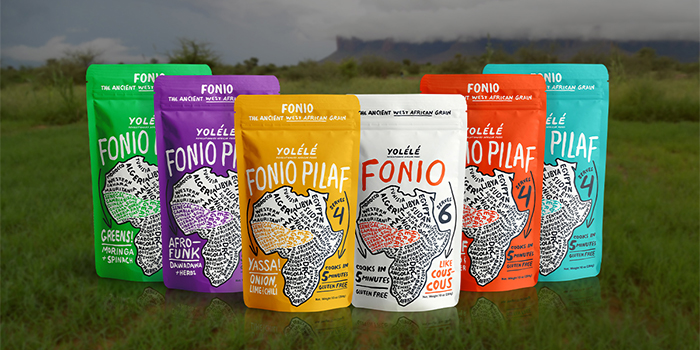
West African-inspired food company Yolélé announced it has received a $2 million grant from the U.S. Agency for International Development (USAID) to establish a new supply chain network: West African Ancient Grains (WAAG). The network will source fonio, among other “underutilized orphan grains,” from over 30,000 smallholder farms throughout West Africa with the end goal of creating sustainable market demand beyond the brand’s own use of this “miracle grain.”
With the help of its operating partner, shea butter manufacturer Mali Shi, WAAG will also establish and run a new agro-processing operation based in Mali to prepare the grains for export to the United States. Between the supply network and processing center, the new venture is expected to generate over 13,000 new jobs and $4.5 million in collective sales for its Mali-based farming partners over the next two years, according to Yolélé co-founder Pierre Thiam.
“In addition to being experienced [agro-processing] operators, Mali Shi operates in the same way we do – working with small farms mostly run by women,” explained Thiam. “They have a network of about 30,000 farmers collecting shea butter for them. That same area that they collect the shea butter is also a fonio growing area and those women are growing fonio as their own subsistence right now.”
“[The goal is] to tap into Mali Shi’s network of women and grow it to 120,000 in three years,” Thiam continued. “This is a network that will be trained and equipped in producing the type of grains that we are looking to bring to market and those are grains they are already growing in their communities.”
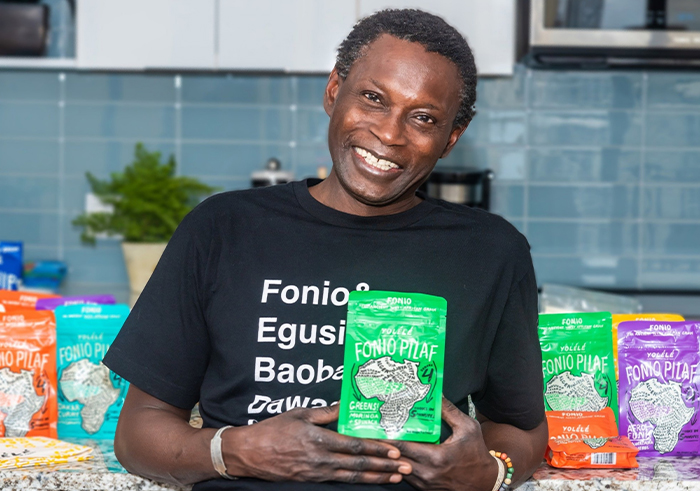
What does this mean?
Born in Senegal and later emigrating to the United States to work as a chef in New York City, Thiam introduced fonio to the U.S. retail market through his brand Yolélé in 2018. During his time in the restaurant industry, Thiam said he noticed a “complete absence of West African cuisine” in the supposed “food capital of the world.”
In the four years since he launched Yolélé, the brand has expanded to national retailers such as Target and Whole Foods and Thiam is shifting his focus on turning fonio into a cash crop for farmers in the region he calls home. In addition to supporting farmers, Thiam aims to share the environmental benefits of the grains and their traditional growing methods while creating a sustainable and traceable supply chain through WAAG.
“Fonio’s deep roots add nutrients to the soil so after growing it, it helps regenerate the topsoil,” Thiam explained. “Being a grain that’s grown in a region called the Sahel, which is south of the Sahara Desert, it also plays a role in slowing the desertification, the advance of the desert. So it regenerates and restores the soil and works wonders for the environment, in addition to not requiring much water.”
While joking that fonio is known as “the lazy farmer’s crop” because it is drought-resistant, does not require soil-tilling and has a naturally regenerative root cycle, Thiam emphasized that the grain it was previously difficult to process, resulting in about 50% waste due to the traditional method of processing by hand. To solve this challenge, the company created a new fonio processing machine with Swiss equipment manufacturer Buhler that will be operating in WAAG’s production facility. The machine completely eliminates processing waste and has increased the production of fonio from one ton processed per day to three tons per hour.
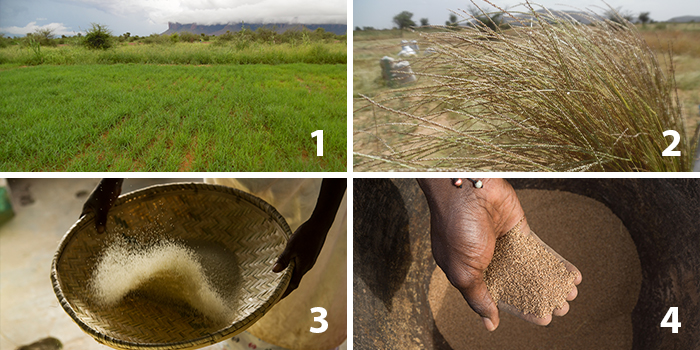
What’s next?
With a steady supply of fonio and modernized processing methods in place, Thiam’s next goal is to efficiently position the grain for widespread use. Local research institutes in Senegal and Mail, along with Cornell University in the U.S., have been contracted to refine the growing process and test agricultural practices that will increase yields and improve the quality of the grain, which Thiam said has already seen significant success.
He also has hopes for WAAG to eventually include other ancient grains already being grown in the region, such as millet and sorghum, so that the farmers continue to embrace regenerative practices rather than mono-cropping “because that’s where the cash is.”
“We don’t want that, we want to support the rotational way of growing crops – the way they’ve been doing it,” Thiam stated. “The amazing thing is that traditional farming methods are really, we believe, the future of farming. They knew how to do it, how to respect the season and the soil. They knew the soil needed to rest from one crop and grow another. Those are the methods and crops we want to make an open market for, so that the farmers continue to grow the way they should be.”
However, for now, fonio is the focus. WAAG’s team is working to build up the network toward its goal of 120,000 farms while helping those with experience raising the crop to grow it more efficiently. If these goals can be executed, the grain will be positioned to compete with commodity crops like wheat and corn and, Thiam hopes, make a larger impact and begin integration with products outside of Yolélé.
“This network will also get fonio to bigger corporations that are looking to add it to products, create new products for diversity sake, and meet their sustainable development goals,” said Thiam. “I am talking about companies like Kellogg’s, or Mondelez, or Unilever, who don’t have access to these grains right now – having a mill that processes these grains in an efficient way would help them, and even if they use only 1% fonio in their products, it will have a tremendous impact in those communities that are growing it.”

